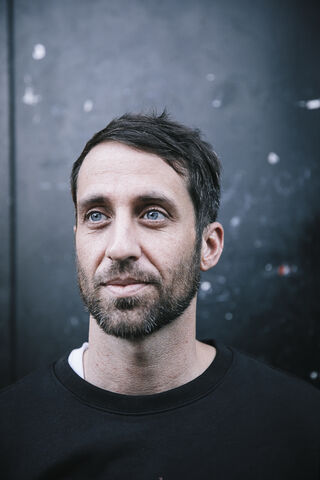OCD
I Never Told Anyone That I Thought I Was a Serial Killer
Learn about an invisible type of OCD and how to tell if you suffer from it.
Posted June 10, 2021 Reviewed by Davia Sills
Key points
- The term "Pure O" OCD was created to emphasize how people can have some symptoms of OCD (obsessions) while others (compulsions) remain secret.
- Aaron Harvey, a mental health advocate and the co-founder of the Made of Millions Foundation, had Pure O OCD for decades before self-diagnosing.
- Now people like Harvey are trying to reduce stigma about mental illness and spread awareness of the many different ways that OCD can present.

What is "Pure O" OCD?
Many people wonder what the term "Pure O" OCD means. The term was created in order to inform the public that OCD can be more than just the “stereotypical” handwashing. Pure O OCD indicates that a person can have OCD while having compulsions that are covert and not seen by others.
A great example is a person who feels the need to repeat prayers in their head until it feels "perfect." This is no different than the person who showers until they feel "clean." Only, in this case, you can visibly see the contamination sufferer’s compulsions but not the praying sufferer's. Yet, both types of OCD can cause equal amounts of torture, loss of functionality, and disruption for the person.
The example of Aaron Harvey
I recently had the opportunity to discuss Pure O OCD with Aaron Harvey. Aaron is a mental health advocate and co-founder/principal of the Made of Millions Foundation. Aaron has struggled with OCD for over two decades since he was 8 years old.
Aaron suffered from "hidden" OCD. He would have intrusive thoughts about religion, sexuality, and harming others. Always wondering whether or not he would "lose" control of his mind. He lived his life feeling "on the edge, going a thousand miles an hour." Aaron would avoid knives, sex, the kitchen, having friends over, and many other everyday activities.
He explained that "no one had a clue" what he was going through. He "never associated it with OCD." He finally diagnosed himself by finding similar stories to his on the internet. Sadly, many sufferers go undiagnosed. Not nearly enough clinicians and medical professionals are trained in identifying OCD, especially an OCD with invisible compulsions.
Since Aaron lived with OCD that was undetected for so long, he instinctively developed his own strategies to treat himself. Like using humor and always making his thoughts worse, which he calls "one-upping my thoughts." Aaron and I laughed at how similar his "instinctual strategies" for resisting compulsions are to the interruption strategies in the RIP-R therapy. The therapy I created when I needed to treat my own OCD symptoms. (See the article, "Can This New OCD Treatment Help Where Others Fall Short?")
Aaron would like to see behavioral therapies, like Exposure and Response Prevention (ERP), be made easily available and explained to the public. He feels that had he been given the simple information that having thoughts of "losing control" and "harming someone" were symptoms of OCD, it would have made a huge difference in his life.
As a way to change the "world’s perception regarding mental health,” Aaron started the Made of Millions foundation, which "is a global advocacy nonprofit on a mission to change how the world perceives mental health." His foundation focuses on connecting culture and science; they utilize storytelling and psycho-education with the goal of "de-medicalizing" mental health.
The foundation tries to find ways to educate employees in the workplace by having employers “mandate the educating.” Aaron would like to see employers have infrastructures set up, in order for people to be open about their mental health issues. If a place of employment does not have a system in place, he recommends setting one up, possibly through the Human Resources department.
Currently, Aaron views OCD as easy to manage, once you understand the template of how it presents itself:
"If I notice I'm avoiding, I just double down and do the thing over and over again... That skill has made me more capable of being able to manage, but what is impossible to decouple or ever address is just the loss of life; of two decades of lost decisions, lost autonomy, lost everything just reckoning with that and trying to figure out who you are and what you believe and what's real and isn't real. That is the part of the puzzle that I think people with OCD struggle with the rest of their lives."


